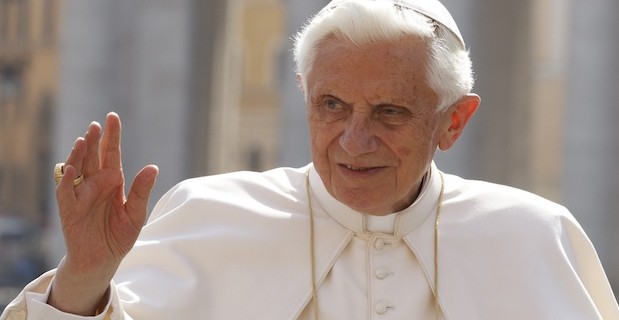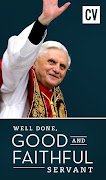Confessional not a 'dry cleaner,' says Pope
By Estefania Aguirre
.- Pope Francis said the Sacrament of Confession does not work like a dry cleaner but is a moment in which Jesus imparts his peace.
“Jesus in the confessional is not a dry cleaner, it is an encounter with Jesus but with this Jesus who waits for us just as we are,” said Pope Francis.
“Many times we think that going to confession is like going to the dry cleaner to clean the dirt from our clothes,” he observed during his April 29 homily.
But what really happens is that Jesus “donates to us the peace that only he gives,” he said.
The Pope usually invites different groups to attend his daily Mass in the chapel of Saint Martha’s residence, where he lives.
Today, the personnel from the Administration of the Patrimony of the Apostolic See were among the congregation.
“We are often ashamed to tell the truth, but shame is a true Christian virtue, and even human,” he commented.
“I do not know if there is a similar saying in Italian, but in our country those who are never ashamed are called ‘sin vergüenza,’” he said in his April 29 homily.
“This means ‘the unashamed’ because they are people who do not have the ability to be ashamed. And to be ashamed is a virtue of men and the women who are humble,” he added.
Pope Francis taught that being ashamed of sins is “not only natural, it’s a virtue that helps prepare us for God's forgiveness.”
He underscored that confession is not “a torture session” and that God is not waiting “to beat,” but is instead “always waiting for us, with tenderness to forgive.”
“It is going to praise God, because I, a sinner, have been saved by Him,” said Pope Francis.
“And if tomorrow I do the same?” he asked. “Go again, and go and go and go.”
The Pope encouraged the congregation to “never masquerade before God.”
“Jesus Christ is the righteous (one) and supports us before the Father," he said.
“He defends us in front of our weaknesses, but you need to stand in front of the Lord with our truth of (being) sinners, with confidence, even with joy, without masquerading,” he remarked.
The Holy Father also noted that walking in darkness means being “overly pleased with ourselves and believing that we do not need salvation.”
“That is darkness!” he exclaimed. “When we continue on this road of darkness, it is not easy to turn back.”
“We all have darkness in our lives, moments where everything, even our consciousness, is in the dark, but this does not mean we walk in darkness,” said the Pope.
“Jesus in the confessional is not a dry cleaner, it is an encounter with Jesus but with this Jesus who waits for us just as we are,” said Pope Francis.
“Many times we think that going to confession is like going to the dry cleaner to clean the dirt from our clothes,” he observed during his April 29 homily.
But what really happens is that Jesus “donates to us the peace that only he gives,” he said.
The Pope usually invites different groups to attend his daily Mass in the chapel of Saint Martha’s residence, where he lives.
Today, the personnel from the Administration of the Patrimony of the Apostolic See were among the congregation.
“We are often ashamed to tell the truth, but shame is a true Christian virtue, and even human,” he commented.
“I do not know if there is a similar saying in Italian, but in our country those who are never ashamed are called ‘sin vergüenza,’” he said in his April 29 homily.
“This means ‘the unashamed’ because they are people who do not have the ability to be ashamed. And to be ashamed is a virtue of men and the women who are humble,” he added.
Pope Francis taught that being ashamed of sins is “not only natural, it’s a virtue that helps prepare us for God's forgiveness.”
He underscored that confession is not “a torture session” and that God is not waiting “to beat,” but is instead “always waiting for us, with tenderness to forgive.”
“It is going to praise God, because I, a sinner, have been saved by Him,” said Pope Francis.
“And if tomorrow I do the same?” he asked. “Go again, and go and go and go.”
The Pope encouraged the congregation to “never masquerade before God.”
“Jesus Christ is the righteous (one) and supports us before the Father," he said.
“He defends us in front of our weaknesses, but you need to stand in front of the Lord with our truth of (being) sinners, with confidence, even with joy, without masquerading,” he remarked.
The Holy Father also noted that walking in darkness means being “overly pleased with ourselves and believing that we do not need salvation.”
“That is darkness!” he exclaimed. “When we continue on this road of darkness, it is not easy to turn back.”
“We all have darkness in our lives, moments where everything, even our consciousness, is in the dark, but this does not mean we walk in darkness,” said the Pope.


-255x171.jpg)








